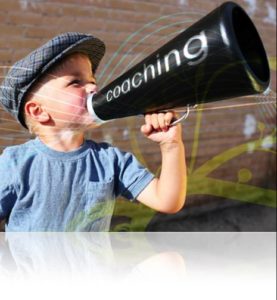
 Are you being coached well? Are you gaining ground from your coaching and/or training? Read the 5 great performance principles I learned from my piano teacher. Ask yourself, “Is my coach or trainer exhibiting these principles with me?”
Are you being coached well? Are you gaining ground from your coaching and/or training? Read the 5 great performance principles I learned from my piano teacher. Ask yourself, “Is my coach or trainer exhibiting these principles with me?”
Why are these principles so important? Because, as trainers, we want to
change behavior,
not just impart information!
Big questions for trainers: Are you training with methods that actually change behavior, or are you just imparting information you think will help your students?
PS. If you want creative training techniques that really do change behavior, check out my unique course, Instructor Development Workshop. Or, see my distance learning version, Train the Trainer. Both qualify instructors to teach clock hour courses in Washington state.
Why Some Get Results–and Others Don’t
Recently, one of my coaching clients (an owner of a real estate company) asked me, “Why do some trainers and coaches get great results and others don’t–but seem to be working as hard?”
Great question, huh? In fact, if we trainer/coach types knew that answer, we could build our systems so that we assured great performance! So, I went back to my ‘former life’–that as a musician and piano/flute teacher, and thought, “Why do some piano teachers create great performers–and others don’t?”
Why Use Piano Teachers as the Analogy….
I use the analogy of the piano teacher, because it’s easy to hear differences in sloppy and great performance. I’m sure you’ve heard 2 people play the same piece of music. One plays it accurately and one just kind of slops through it. Or, some piano teachers’ students drop out, unmotivated to practice, while others stay motivated, challenged, and achieve high performance–even if they don’t seem to have great talent.
Five Proven Components for Great Performance
From having taken piano lessons since age six, gaining a degree in piano performance, and having taught piano at the grade, high school, and college level, I’ve had an opportunity to see the great and the not-so-great–both teachers and performers.
1. Great piano teachers screen in and screen out.
They don’t let just anybody take lessons from them.
Are you in a program you’re proud to be in? Do you know you have to work hard to stay in the program/
Trainers and coaches: What’s your ‘screen in’ process? Do you have one? Do you have a list of questions you ask? In our coaching company, we have a prescribed list of questions we ask potential clients (and we unfortunately have to turn down some). I even have a Coachability Assessment I provide potential clients. Click here to request your copy.
2. Great piano teachers set expected standards (minimums) during the screening process–not after the lessons start!
Those standards include: Amount of practice each day, recitals attended and played in, going to lessons, etc.
Does your coach have performance expectations and standards that he/she has shared with you? How do you know?
Trainers and coaches: What do you expect of your clients? Make a list of at least 5 standards now–and get the ‘mutual expectations’ agreement in writing prior to letting them into your program.
3. Great piano teachers figure out the ‘competency levels’ they want their students to attain–and when they expect them. They won’t let the students perform in front of others if the student has not reached compentency levels.
What performance level does your coach expect of you? Do you know?
Trainers and coaches: How good do you expect your students to get in that one-month training program you’ve been doing? Do you even measure skill levels? Which skill levels to you measure? How? Do you have your students practice their listing presentations until they reach the level of competency you believe the real client expects? What an eye-opener! Make a list now of 5 skills and the level of competency you want your students to attain in your training program. You’ll see your outcomes go way up just by doing this.
4. Great piano teachers get better performance because their excellent students motivate other good students to excellence.
Is your coach motivating you to keep getting better?
Trainers and coaches: Have you ever gotten yourself into the situation where you felt like you were way above the other people in your group? This isn’t an ego thing–it’s just a ‘I don’t belong here’ thing. Likes attract. Good performers motivate other good performers. Excellent performers stay. Are you creating a self-motivating group–or, are you creating a situation where your good performers will leave for a team that is ‘more like them’? This goes back to those ‘screen in’ and setting competency principles. I know we all feel challenged when people don’t appear motivated. Here’s one of the secrets to fire them up!
5. Great piano teachers provide lavish praise–when deserved.
Behavior that’s rewarded is repeated.
Are you thanked for your achievements? Do you feel your coach is ‘on your side’, encouraging you at every step of the way?
If you have competency levels, you have a way and a reason to praise. Your students/clients know when they have reached those levels–and can expect praise, too! In fact, strong students/clients will ask you for praise. Write down the 5-10 methods you use to appreciate and praise good performance. If you can’t get to 10, figure them out.
But, what about the method? The specific coaching, the training? Yes, the method is important, but the coaching/training techniques above are much more important. I’ve heard some great performers and some poor performers all playing the same kind of music from the same method. At the same time, great methods should have some ‘built-in’ features that assure the trainer/coach is achieving these 5 principles.
Principles, System, Coaching–Putting it All Together
From talking with prominent trainers, managers, and coaches, we’ve pinpointed a need for all those training and coaching today to get the coaching they need to turn out great performers. So, each one of these 5 principles is in my initial online training program for newer agents: Up and Running in Real Estate. Check it out. Your agents will be performing better and faster with this program and principles.
 Is Your Initial Training Program Getting the Results you Want?
Is Your Initial Training Program Getting the Results you Want?
Or, a better question: Do you know what the results are? With my online training program, Up and Running in Real Estate, you see the progress your agent is making each week. You measure the results in concrete terms. Check it out. It will save you time, and money, and give you much greater retention!




